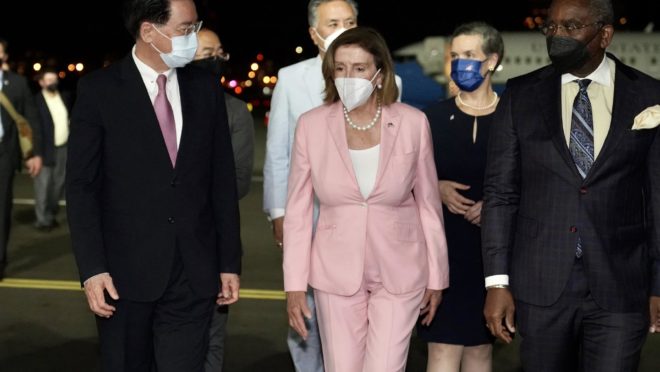With the crisis of Pelosi’s visit to Taiwan, are the US and China closer to war?

[ad_1]

Tuesday’s visit (2) of the Speaker of the United States House of Representatives, Nancy Pelosi, Taiwan has intensified tensions between the two largest economies in the world, a relationship that was already deteriorated by trade issues, by China’s refusal to condemn Russia for the invasion of Ukraine and, of course, because of the island’s own situation.
China has been carrying out several incursions into Taiwan’s airspace, which it considers a rebel province to be reincorporated until 2049, the year that will mark one hundred years since the end of the civil war that ended with the victory of the communists and the withdrawal of the nationalists to the island. .
The United States does not formally recognize Taiwan as an independent state (in fact, only 14 countries in the world do) and is adept at the “one China” policy, but it supports Taipei militarily and has criticized Beijing’s aggressive rhetoric against the democratic government. place.
In response to Pelosi’s visit, which he called a “major political provocation”, China announced military drills in five areas around Taiwanwhich will involve live ammunition exercises and will include the closure of maritime and air space at these points.
Military analyst Paulo Filho pointed out, in an interview with Gazeta do Povo, that these measures are similar to those taken by Beijing between 1995 and 1996, during the Third Taiwan Strait Crisis.
“If that’s all it is, it won’t be much different from what happened back then. But China’s rhetoric today is more fierce, not least because it is a much more powerful country than it was in the 1990s,” said Filho, who cited internal pressures suffered by dictator Xi Jinping.
“At the end of the year, the Communist Party convention will take place, in which he should win an unprecedented third term. But things are not as good for him as in previous years. The Covid-zero policy has harmed the economy, China is growing much less than expected and this policy has displeased the population”, highlighted the analyst.
“All he didn’t need was a crisis like this, especially since he spoke directly to the president [americano, Joe] Biden about consequences on Taiwan, which can give the Chinese population an impression of weakness. So maybe he wants to convey the image of a strong leader and scale the tone a bit,” added Filho.
Stephen Collinson, an analyst at CNN, pointed out in an article published on the network’s website that an escalation could occur as a result of the Chinese dictator’s need to demonstrate strength.
“The assumption in Washington is that Xi has no more interest in a direct military confrontation than Biden. But he is stronger than previous Chinese leaders. And there is a strong nationalist bias within the Chinese military, along with a growing confidence in its ability,” Collinson pointed out.
“So making assumptions about how China would respond to Pelosi’s visit based on Chinese behavior in past crises could mean the US is in for an unpleasant surprise,” he warned.
Paulo Filho stated that he believes that China and the United States can resort to strategies such as increasing the tone of rhetoric, diplomatic measures (such as calling their respective ambassadors back to the country) and trade retaliation. But at this point, an invasion of Taiwan (to which the US has promised to respond promptly) is very unlikely, in the analyst’s view.
“A military operation to conquer Taiwan would be very complex, you can’t compare it to the situation in Ukraine, which is Russia’s neighbor and has a land border. Taiwan is an island [o Estreito de Taiwan tem 180 km de largura média]China would need to carry out a very complicated landing operation, have a very strong naval power to carry out a naval blockade… today, Beijing does not have sufficient mechanisms for this type of operation, especially when facing the United States”, he justified.
[ad_2]




